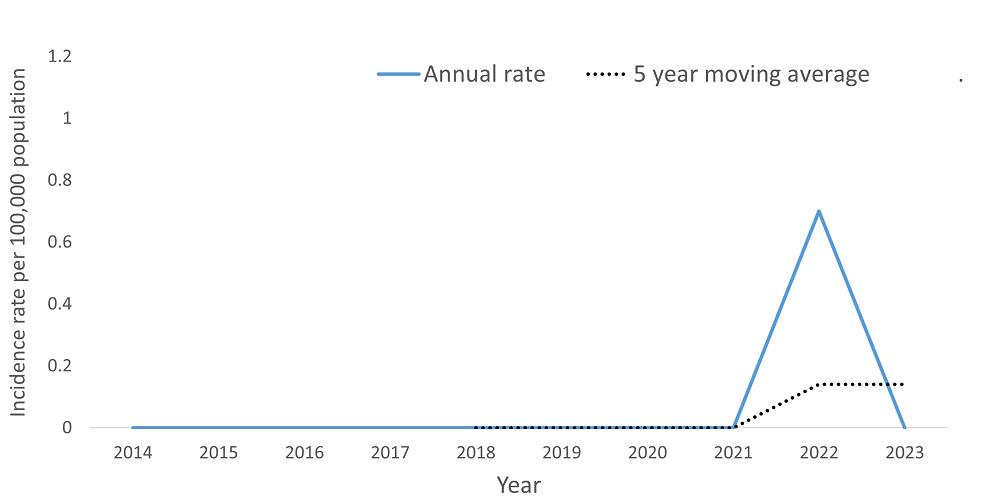Mpox is caused by the monkeypox virus, which is closely related to the virus that causes smallpox. While most people get better quickly, some people can become very sick. It can spread through close physical contact with someone who has mpox, or by touching contaminated surfaces.
Locally, the risk of getting mpox is low.
Local information
2024 Statistics
Incidence rate is the number of new cases of disease divided by the number of persons at risk for the disease during a particular time period.
Cases:
0*
*Includes confirmed cases in 2024.
Incidence rate per 100,000 in 2024: 0
Contact our Communicable Disease Control (CDC) program at 705-474-1400 or toll free at 1-800-563-2808, ext. 5229, or by email to cdc@healthunit.ca for more information.
Last updated: February 2025, by CDC


